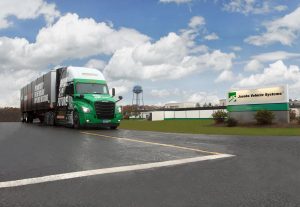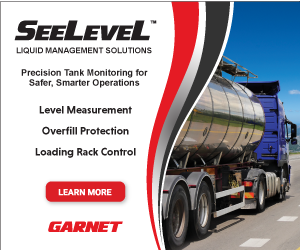Cummins buying Jacobs Vehicle Systems, a homecoming of sorts

Cummins buying Jacobs Vehicle Systems. Best known for the Jake Brake, today Jacobs also provides cylinder deactivation, start-and-stop and thermal management technologies.
To help it in development of current and future advanced diesel engine platforms, Cummins is buying Bloomfield, Conn.-based Jacobs Vehicle Systems. Best known for the Jake Brake, today Jacobs also provides cylinder deactivation, start-and-stop and thermal management technologies.
It’s a homecoming of sorts; in 1961, Jacobs introduced the first engine brake for commercial vehicles, which was invented by Clessie Cummins, the founder of Cummins.
The acquisition is part of Cummins’ continuing investment in key technologies to reduce greenhouse gas emissions and lower the air quality impacts of their products, the company said. Engine braking and cylinder deactivation technologies will be key components to meeting current and future emissions regulations. This acquisition will allow Cummins to better integrate these vital components with its medium and heavy-duty engines, according to Cummins. Both Cummins and Jacobs have also been working with Tula to test more sophisticated algorithms for cylinder deactivation technology.
The acquisition of the Altra Industrial Motion subsidiary also secures engine components for current and aftermarket products, and expands the Cummins Turbo Technologies’ business unit, Cummins officials said in a press release.

Jacobs has two primary manufacturing facilities in Bloomfield and Suzhou, China, and Cummins expects to invest additional capacity and resources into those operations.
Enjoying our insights?
Subscribe to our newsletter to keep up with the latest industry trends and developments.
Stay InformedJacobs has two primary manufacturing facilities in Bloomfield and Suzhou, China, and Cummins expects to invest additional capacity and resources into those operations. Jacobs’ manufacturing footprint will help Cummins meet requirements of the United States-Mexico-Canada Agreement and further invest in the U.S.
Jennifer Rumsey, Cummins’ president and chief operating officer, said she expects the transaction to provide financial returns and future growth opportunities through Jacobs’ engineering expertise, product portfolio and manufacturing capabilities.

Cummins plans to maintain Jacobs’ customer relationships.
Cummins plans to maintain Jacobs’ customer relationships.
Founded in 1961, Jacobs has roughly 600 employees and more than 60 years of experience in engine retarding and valve actuation systems for the commercial vehicle industry.
This acquisition is subject to customary closing conditions, including receipt of applicable regulatory approvals, and is expected to close later this year.




















